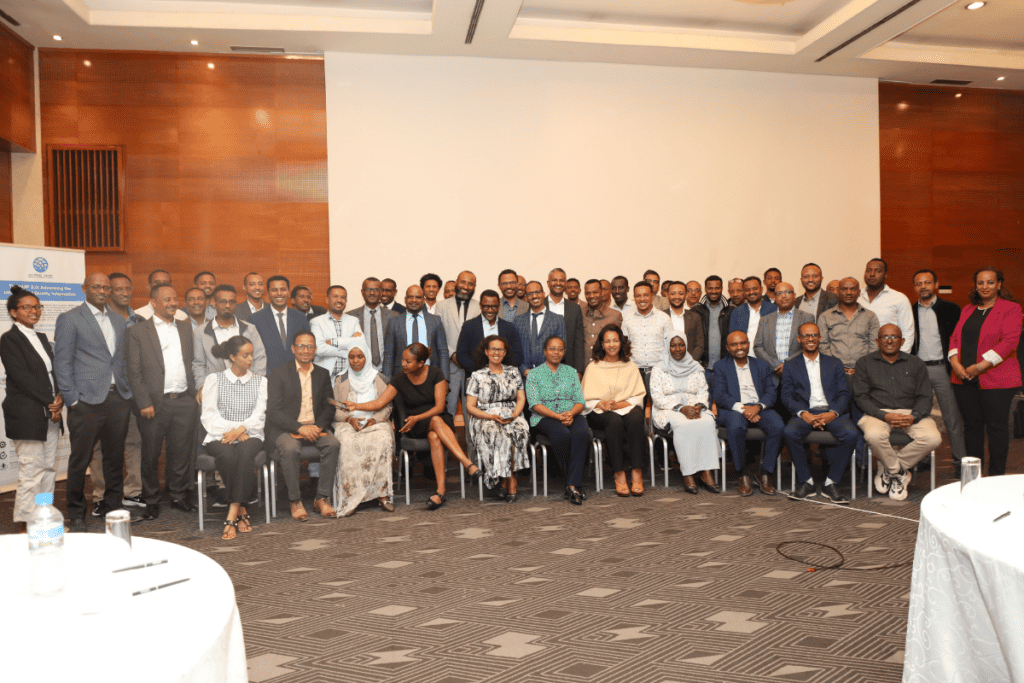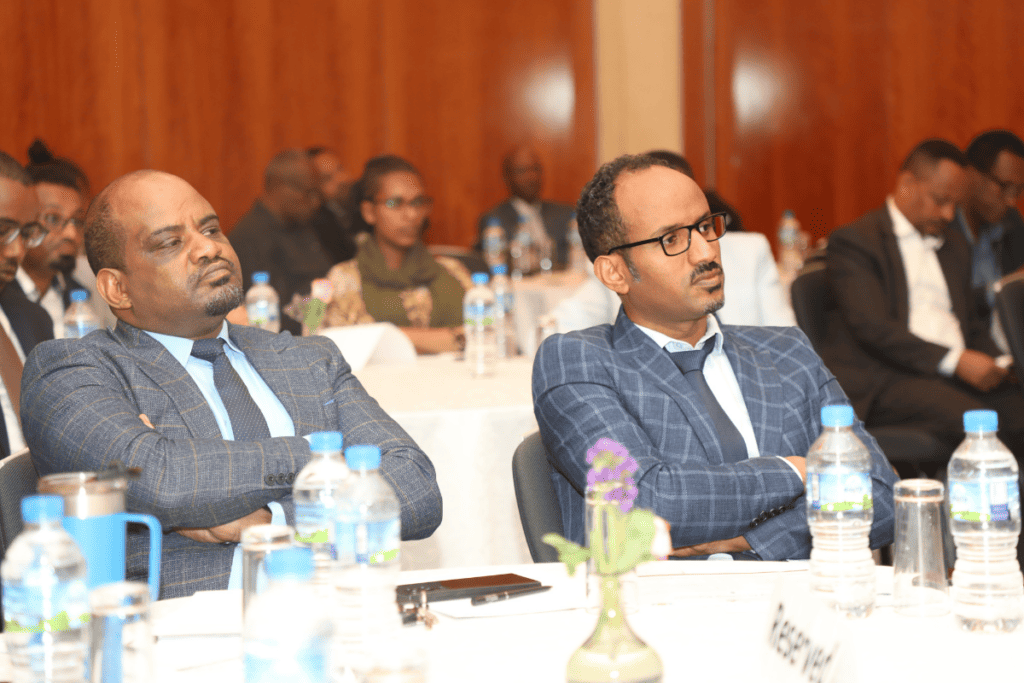DUP 2.0: Advancing Ethiopia’s Digital Health and Quality Data Use
February 9th, 2024 | news
Health extension workers at the Bura health post in the Bacho district of the Oromia region are using eCHIS to input health data. Photo: Benti Ejeta/JSI
Creating integrated digital health care systems that lead to better health outcomes is complicated. Technology is one piece of the puzzle, along with making quality data accessible to health workers, administrators, and policy makers at all levels of the health system. But another significant, yet overlooked, component is users valuing data and using it in routine work to guide their decisions. From allocating resources to marking program performance, decisions that are evidence-based will ultimately improve health and nutrition services for Ethiopians.
Since 2017, JSI has partnered with the Bill & Melinda Gates Foundation to support the Ethiopian Ministry of Health (MOH) and regional health bureaus (RHBs) improve the collection, management, and use of health information across the health system through the Data Use Partnership (DUP). Collaborating with various sector actors, the project helped to advance the country’s digital health efforts that increased the generation and enhanced use of high-quality data for informed decision-making. Read more about DUP’s key achievements.
In January 2024, amidst the evolving landscape of the country’s health information system (HIS) and dynamic changes in digital health technologies, the second phase of the project, DUP 2.0, began. Building on the first phase’s accomplishments, DUP 2.0 is organized into four independent yet interrelated workstreams that are intended to actualize localization strategies, ensuring equitable support across all levels of the health system and optimizing diverse perspectives from various organizations and sectors.

Participants of the DUP 2.0 project launch ceremony Photo: Benti Ejeta/JSI
Because of JSI’s experience leading the initial phase of the project and its expertise in country-led HIS strengthening, it will coordinate the workstreams and continue its close partnership with the MOH to ensure activity alignment, efficient resource use, and regular information exchange.

H.E. Dr. Ayele Teshome, state minister of MOH (left) and Wubshet Denboba, DUP project director (right) at DUP 2.0 launch. Photo: Benti Ejeta/JSI
At the January DUP 2.0 launch in Addis Ababa, guest of honor, State Minister of Health Dr. Ayele Teshome, said that the continuation of DUP will help Ethiopia transform its health information management processes and practices. Dr. Teshome reinforced the importance of partnerships that include both international and local expertise and noted that involving private firms and academia were key to the success and effectiveness of the program’s first phase.
DUP began with the principles of partnership, collaboration, and government ownership that guided it toward new approaches, like embedded technical assistance, partnerships with academia, and tapping into undergraduate talent. These principles and effective strategies will form the foundation for DUP 2.0 and ensure its success over the next four years.
We strive to build lasting relationships to produce better health outcomes for all.